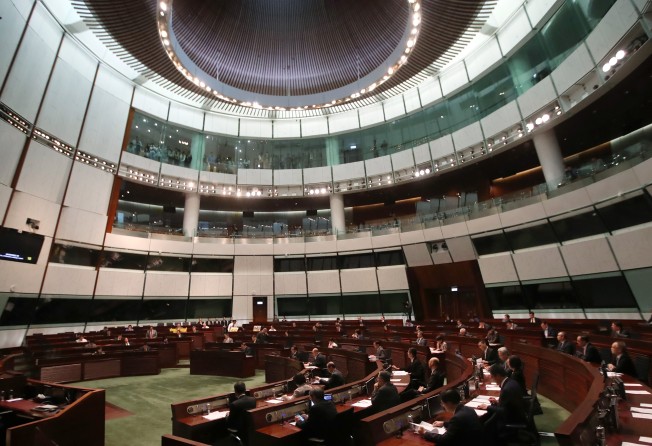Why Hong Kong’s proposed freedom of information law must face public scrutiny
- There is a still a chance to scrutinise important proposed government legislation, which must be taken or else the ability to do so in future may get more expensive and difficult

Freedom of information (FOI) is an important tool for scrutinising those in power, and Hong Kong has had a Code on Access to Information in place since 1995, but no archives law to ensure that there are records to be accessed. Possibly because of having a weak code rather than an enforceable law, Hong Kong has historically been a low FOI jurisdiction, with Ireland, which has a similar population, seeing roughly seven times the number of requests.
With the rise of data journalism and transparency and open data advocacy groups such as Open Data Hong Kong, it has been encouraging to see the amount of requests triple over the last decade. These rare wins in citizen engagement in the lawmaking process may be rolled back however, as proposed legislation slipped out quietly in the holidays and the chance to comment on and scrutinise it ends shortly.
On the surface the proposed archives and FOI legislation fill a very important gap. Sweden’s FOI legislation goes back to 1766, so this has been a long time coming. After over five years of drafting, the two Law Reform Commission consultations are weighty – over 450 pages – with extensive research on other jurisdictions, presenting 20 recommendations and 12 consultation questions. The detail is impressive, but to scrutinise it thoroughly requires time and many eyeballs, and legislator Charles Mok’s call to extend this process has not been heeded.
In the UK and many other jurisdictions FOI requests are free, and since 1995 this has also been the case in Hong Kong. One of the biggest changes proposed in the consultation is a recommendation that this should no longer be the case, and tiered charges be brought in. As the consultation document points out, in Australia, Canada and other countries that do have provisions for charging, most queries do not take much time and the fees are waived, particularly when the request is in the public interest. The consultation report also shows setting up a charging process is so complicated and time-consuming that it is usually not worth bothering with. At most only a small percentage of the costs was ever recovered, meaning the main reason for bringing in charging was to limit use. The idea would also mean dealing with FOI in a similar manner to a soda or carbon tax, or treating transparency in a similar manner to smoking.
With no mention of waivers or protecting free use for the public interest, and barely denting our underspent budget, the introduction of such a “transparency tax” would only reduce the already low number of FOI requests that we have in Hong Kong, thus taking away a fundamental right to free information that we have had for over two decades.
There are other issues that deserve more scrutiny in this consultation, such as the lack of deadlines, vague exemptions and a lack of a neutral commission for enforcement. Another key issue would be how the legislation would be extended to government-funded bodies.
In Britain more than 100,000 public bodies are covered by FOI laws, but in Hong Kong the proposed legislation would cover less than 20 per cent of 470 government-funded statutory bodies.
This would make for a much smaller list of government-funded or subsidised bodies, such as public universities, than are covered in other countries.
The exclusion of some corners of government leads to strange discrepancies in our rights. For example it is possible to scrutinise the Hospital Authority and the Department of Health under the current code, but Chinese medicines are regulated by a statutory body – the Chinese Medicine Council of Hong Kong, which does not share safety or efficacy information because it says such information is commercially sensitive.
Now is our last chance to scrutinise and have a say about some important government legislation, as our ability to take such action may get more expensive and difficult in the future if we don’t.
Scott Edmunds is an executive committee member at Open Data Hong Kong